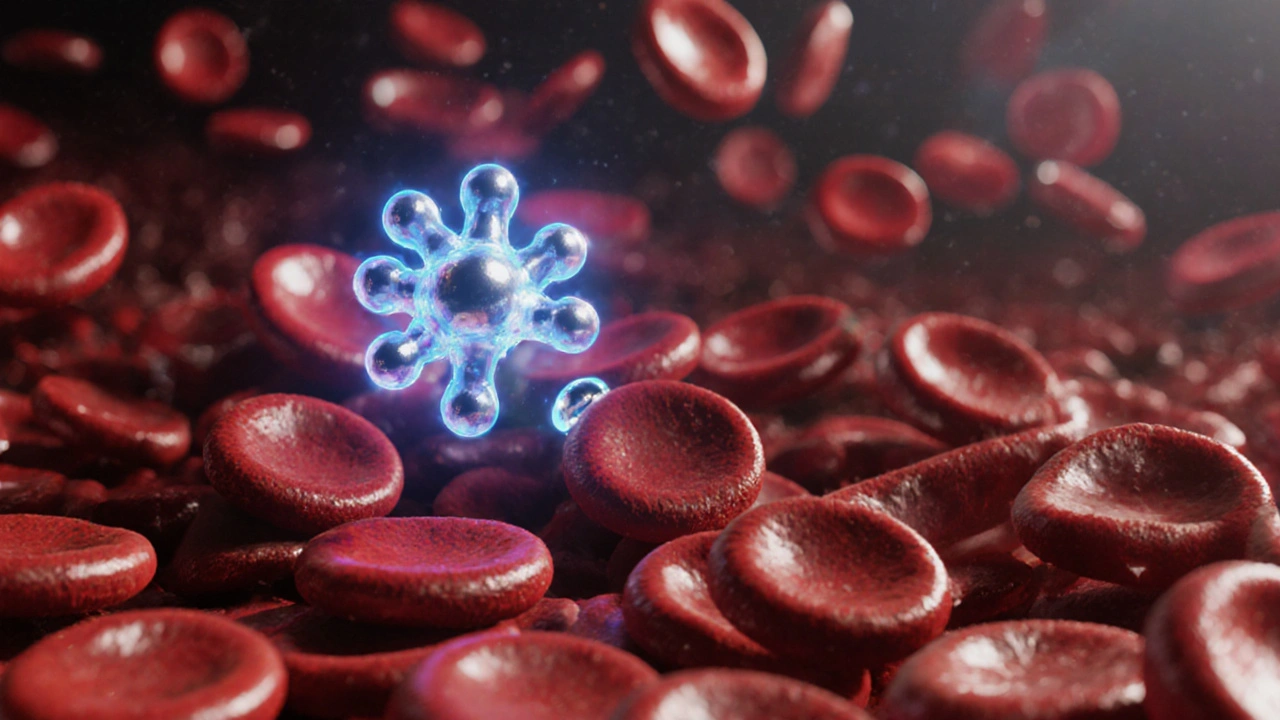Understanding Nutritional Anemia
When dealing with nutritional anemia, a condition caused by insufficient intake or absorption of essential nutrients needed for healthy red blood cells. Also known as diet‑related anemia, it often shows up as fatigue, shortness of breath, or pale skin.
One of the biggest players is iron deficiency, lack of adequate iron intake or absorption leading to microcytic anemia. Without enough iron, the body can’t make hemoglobin, the protein that carries oxygen. Another frequent culprit is vitamin B12 deficiency, a shortage that causes macrocytic anemia and neurological issues. B12 is only found in animal products, so vegans and people with absorption problems are at risk. Folate deficiency, insufficient folic acid intake that also leads to macrocytic anemia matters especially during pregnancy, when rapid cell growth demands more folate.
How Medications and Chronic Conditions Influence Nutrient Gaps
Some drugs can push you toward anemia without you realizing it. For example, long‑term zidovudine therapy, often used in HIV treatment, can suppress bone‑marrow production and worsen iron levels. Anti‑inflammatory steroids like betamethasone may affect gut absorption, indirectly lowering iron and folate uptake. Even conditions such as secondary hyperparathyroidism disturb calcium and vitamin D balance, which can interfere with iron metabolism. Recognizing these links helps you catch a nutrient shortfall early.
Dietary habits matter, too. A typical Western diet high in processed foods often lacks heme‑iron sources like red meat, while plant‑based iron (non‑heme) is less readily absorbed. Pairing iron‑rich foods with vitamin C can boost absorption, but coffee or tea at meals can block it. For vitamin B12, fortified cereals or supplements become essential for those who avoid animal foods.
Addressing the deficiency starts with the right supplement. Iron supplements, oral ferrous sulfate, gluconate, or newer chelated forms designed for better gut tolerance are the first line of defense. Choose a formulation that matches your stomach’s tolerance and take it with food if needed to minimize upset. For B12, sublingual tablets or monthly injections bypass gut problems entirely. Folate can be added as folic acid or as methylfolate for better bioavailability, especially for people with MTHFR gene variations.
Monitoring is key. Blood tests that check hemoglobin, hematocrit, serum ferritin, B12, and folate give a clear picture of where you stand. Repeat testing after a few weeks of supplementation tells you if the plan is working or if adjustments are needed. If you’re on medications that affect nutrients, talk to your doctor about routine labs.
Understanding nutritional anemia means seeing the whole picture: diet, supplements, medicines, and underlying health issues. Below you’ll find articles that dig deeper into specific drugs, nutrient interactions, and practical steps you can take right now to boost your blood health.
- October
12
2025 - 5
Zinc’s Impact on Nutritional Anemia: Causes, Foods & Supplement Tips
Learn how zinc affects nutritional anemia, its mechanisms, key foods, supplementation tips, and who should pay extra attention.
Read More